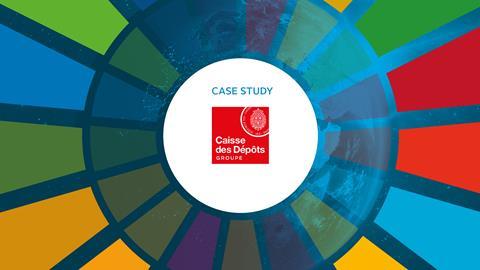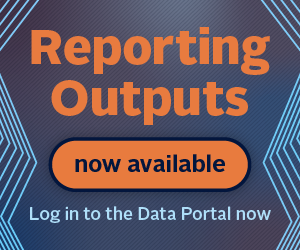Caisse des Dépôts and Consignations
- Asset Owner
- France
- AuM €430bn
This case study is focused on the creation of Caisse des Dépôts group’s approach to formalise action plans that assess our impact and improve our contribution to key Sustainable Development Goals (SDGs) through a bottom-up analysis of group activities.
Why we focus on SDG outcomes
In 2019, Caisse des Dépôts’ sustainability policy was renewed to incorporate the SDGs, a universal matrix that is relevant for all our activities, counterparties and stakeholders. Our aim was to develop a robust, flexible and simple approach to evaluating the positive and negative outcomes from our activities and to improve our impact on key societal priorities. We started a group-wide project to assess and increase our business units’ contributions to the SDGs, to enable the executive committee to:
- evaluate how each unit implements and accounts for our new corporate mission of “acting for social cohesion and sustainability throughout French territories”, with the aim of increasing its contribution;
- better articulate financial, strategic and sustainability management processes; and
- contribute to the development and implementation of a French SDGs roadmap.
This strategy is being integrated within all corporate and investment processes, from strategic planning and asset allocation, to responsible investment action plans and tools, reporting and assessment, HR and communications.
This is also an opportunity to share practices and reinforce relationships with financial partners, such as institutional investors and other public banks, and customers such as corporates and local authorities. The project also aims to assess our contributions to public policy priorities and explain more concretely to the broader public how the group is responding to citizens’ key needs.
How we focus on SDG outcomes
The project is structured around an action plan for each business unit to improve its contributions to the underlying Agenda 2030 targets. The plan includes intentional actions which are implemented to improve each unit’s positive impact, or reduce its negative impact, on one or more SDG target.
To support this, an ‘SDG-balanced scorecard’ has been developed by an internal SDG taskforce of 30 collaborators, with expertise and responsibilities ranging from sustainability, strategy and senior management, across all business lines.
With the assistance of the responsible investment team, each unit rated the positive and negative impacts of their activities on all the different SDG targets, and identified levers for improving this impact. It then drew up its action plan by prioritising key issues and levers, using three types of criteria: real economy impact; contribution to operational efficiency and strategic alignment.
The resulting scorecards were consolidated at the group level into:
- Priority SDGs, where the ambition is to improve the impact of activities through close integration of the SDGs into management processes (SDGs 4, 7, 8, 9, 10, 11 and 13);
- Significant SDGs, which are significant for some activities and require close monitoring to ensure the impact does not worsen (SDGs 3, 5, 12, 15, 16 and 17).
The overall group scorecard was approved by the executive board. The taskforce then developed a process to supervise and monitor the plan’s implementation, to enable an annual performance review by the group executive committee and supervisory board.
In early May 2020, the executive committee also asked the taskforce to re-evaluate and adjust the action plans to contribute to the economic recovery following COVID-19. This did not result in significant changes to the design of the action plans – demonstrating the robustness of the first analysis – but increased the ambition for some activities.
By early 2021, the taskforce will propose quantitative targets for each action for the board’s approval. They will be integrated into strategic planning, asset allocation, risk monitoring and corporate reporting.
Example: Shaping climate outcomes
Depending on the business unit and SDG target, scorecard actions may take different forms, including:
- strengthening due diligence and integration in investment decisions;
- prioritising an issue in the shareholder engagement program;
- increasing high-impact thematic allocations;
- integration into corporate management policy (e.g. HR, facility management).
For instance, one of the group’s strategic missions is to be the “French Climate Bank”, encompassing lending and investment activities. Prioritising SDG 7 and 13 and recognising that SDG 15 is material, we have developed or increased targets in alignment with the Paris Agreement, including:
- increasing the allocation to projects that support the transition to a low-carbon economy, with €20m financed between 2018 and 2020 and new targets being developed in conjunction with the new EU Sustainable Finance taxonomy;
- strengthening our fossil fuel policy, with new exclusions, analysis and engagement guidelines being developed, beyond our current thermal coal policy;
- aligning portfolios’ carbon footprint reduction targets with that of net-zero emissions in 2050, with intermediate 2025 targets being developed using the Net Zero Asset Owner Alliance framework, following up on the 2014-2020 -20% target that has already been achieved;
- achieving carbon neutrality across our own scope 1 & 2 emissions, notably through the retrofit of our premises and the development of a green IT program;
- increasing the percentage of counterparties engaged on the energy transition and the outcome of such engagement.
Each business unit has specific actions to contribute to the implementation of this plan in line with their activities and mandates.
For example, the division for local investments has annual targets on renewable capacities financed, and on the number of “ecological transition contracts” financed to support the just transition in the French Territories. These contracts are joint endeavours between local authorities and companies of all sizes. The French Environment Agency and the French Ministries are also providing assistance to prepare for the transition towards a more sustainable economy.
As part of its climate roadmap, CDC is also offering highly subsidised green loans for energy efficiency in social housing, commercial and public properties (as well as a variety of other dedicated financing along the energy efficiency value chain throughout our units and retrofitting the group’s own extensive social housing portfolio). The local loan division is aiming to finance energy-related modifications of 42,000 social housing units by 2024 and is setting up a similar target for energy-related updates to tertiary1 properties.
Energy efficiency in buildings is a critical pillar of France’s net-zero strategy. The national goal is to reduce greenhouse gas (GHG) emissions by 49% between 2015 and 2030 from energy efficiency in properties (and to reach net-zero GHG emissions by 2050). This retrofit activity not only has a strong climate impact but also a social impact as it addresses the need for a “just transition” in poorer communities, reducing energy precarity for these tenants and developing green employment.
References
1 Assets dedicated to service activities such as commerce, tourism, health and education












